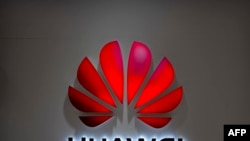ບໍລິສັດຍັກໃຫຍ່ທາງດ້ານໂທລະຄົມຂອງຈີນ ຫົວເວີຍ (Huawei) ໄດ້ທຳການຟ້ອງຮ້ອງຢູ່ສານລັດຖະບານກາງຂອງສະຫະລັດ ເພື່ອລົບລ້າງກົດລະບຽບຂອງລັດຖະບານທ່ານ ທຣຳ ທີ່ຫ້າມບໍ່ໃຫ້ບໍລິສັດຂາຍໂທລະສັບ ຢູ່ໃນເຂດຊົນນະບົດ ໃຊ້ງົບປະມານຂອງລັດຖະບານໃນຈຳນວນ 8.5 ຕື້ໂດລາ ຊື້ອຸປະກອນຂອງບໍລິສັດຫົວເວີຍ.
ຄຳຟ້ອງຮ້ອງນັ້ນ ເວົ້າວ່າ ຄະນະກຳມະການດ້ານສື່ສານຂອງລັດຖະບານກາງ ໄດ້ກະທຳແບບບໍ່ຖືກຕ້ອງ ເມື່ອຄະນະດັ່ງກ່າວໄດ້ວາງຂໍ້ເກືອດຫ້າມອອກມາໃນເດືອນແລ້ວນີ້ ຕໍ່ບໍລິສັດຫົວເວີຍ ແລະຕໍ່ບໍລິສັດ ZTE, ຄູ່ແຂ່ງພາຍໃນປະເທດຂອງບໍລິສັດດັ່ງກ່າວ ໂດຍອ້າງເຖິງຄວາມໝັ້ນຄົງຂອງຊາດ.
ຢູ່ໃນກອງປະຊຸມຖະແຫລງຂ່າວຄັ້ງນຶ່ງ ຢູ່ໃນສຳນັກງານໃຫຍ່ຂອງ ບໍລິສັດຮົວເວີຍ ຢູ່ໃນເມືອງເຊນເຊນ (Shenzhen) ທີ່ຈັດຂຶ້ນໃນວັນພະຫັດມື້ນີ້, ທ່ານ ຊອງ ລິວປິງ (Song Liuping), ທີ່ປຶກສາດ້ານກົດໝາຍຂອງ ບໍລິສັດຮົວເວີຍເວົ້າວ່າ FCC ໄດ້ທຳການຕັດສິນໃຈຂອງຕົນແບບປາດສະຈາກຫລັກຖານວ່າ ບໍລິສັດຮົວເວີຍ ໄດ້ມີໄພຂົ່ມຂູ່ຕໍ່ຄວາມໝັ້ນຄົງ.
ຄຳຟ້ອງຮ້ອງຄັ້ງທີ 2 ທີ່ຍື່ນໂດຍ ບໍລິສັດຮົວເວີຍໄດ້ສູ້ຢັນກັນກັບຂໍ້ອ້າງຂອງລັດຖະບານສະຫະລັດ ທີ່ເວົ້າວ່າ ບໍລິສັດດັ່ງກ່າວເປັນໄພຂົ່ມຂູ່ດ້ານຄວາມໝັ້ນຄົງ. ບໍລິສັດຮົວເວີຍ ໄດ້ຍື່ນຄຳຟ້ອງຮ້ອງໃນເດືອນມີນາຜ່ານມາ ເພື່ອຄັດຄ້ານຕໍ່ລັດຖະສະພາສະຫະລັດໃນປີກາຍນີ້ ທີ່ຫ້າມອົງການ ລັດຖະບານ ແລະບໍລິສັດຮັບເໝົາຕ່າງໆ ເຮັດທຸລະກິດກັບ ບໍລິສັດຍັກໃຫຍ່ທາງດ້ານໂທລະຄົມດັ່ງກ່າວ.
Chinese telecom giant Huawei has filed a lawsuit in a U.S. federal court to throw out a Trump administration rule that bans phone carriers in rural areas from using money from an $8.5 billion government fund to purchase Huawei's equipment.
The lawsuit says the Federal Communications Commission acted improperly when it imposed the ban last month on Huawei and its domestic rival ZTE, citing national security concerns.
At a news conference at the company's headquarters in Shenzhen Thursday, Song Liuping, Huawei's chief legal counsel, said the FCC made its decision without any evidence that Huawei posed a national security threat.
This is the second lawsuit filed by Huawei to combat U.S. government claims that it presents a threat to U.S. national security. The company first filed suit in March challenging the legality of a law passed by the U.S. Congress last year that bars government agencies and contractors from doing business with the tech giant.
Huawei is also involved in a separate legal fight involving Meng Wanzhou, its chief financial officer and the daughter of founder Ren Zhengfei. Meng was arrested in Canada last December on a U.S. warrant seeking her extradition to face charges of violating U.S. sanctions on Iran.
The United States and others worry that technology companies located in countries with governments like China's could be subject to state influence, making the networks insecure. President Donald Trump signed an executive order in May that bars American companies from using telecommunications equipment that is made by companies that pose a national security risk.
But the administration has since granted a series of limited reprieves so Huawei can continue to provide equipment to carriers that provide wireless networks in rural areas.










